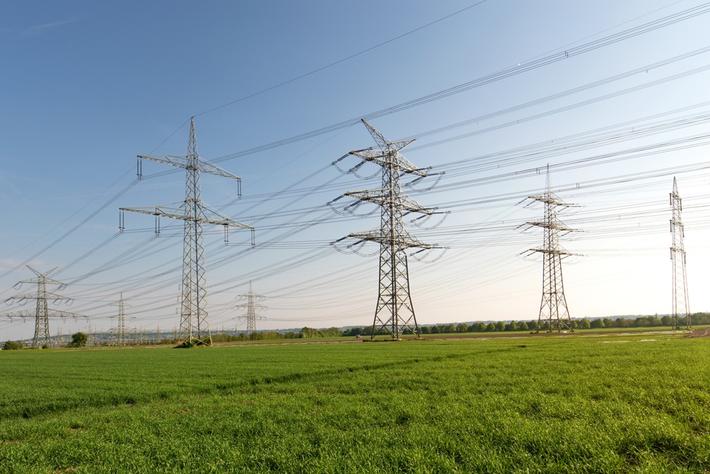
The aluminum industry is dealing with the energy transition
The second edition of the Aluminum Energy Summit was held at BolognaFiere on March 8th, as part of the MECSPE event: an initiative to get closer to the next METEF, the international fair for the aluminum supply chain, scheduled from March 5th to 7 March 2025 at Bologna-Fiere.
MECSPE, now in its twenty-second edition, saw the presence of almost 67,000 visitors and 2,068 exhibitors, making it the main manufacturing industry fair and for which several exhibitors from the aluminum sector interviewed by us expressed very positive opinions, considering it a fair reference for the sector.
There were several conferences that characterized the fair but in particular we would like to highlight the Aluminum Energy Summit organized by METEF, which served to take stock of the concrete contributions and technological solutions that the aluminum industry is able to activate to achieve the circular economy and decarbonisation objectives.
The challenge of “FIT for 55“: the energy transition in the aluminum sector
Several qualified speakers took turns, very well coordinated in their interventions by Professor Annalisa Pola of the University of Brescia.
Professor Umberto Monarca of Luiss University illustrated the evolution of the Italian energy scenario in relation to the objectives of the "FIT for 55" reform package (reduction of net greenhouse gas emissions by at least 55% by 2030) approved in 2022 by the European Parliament and on the significant investments in new renewable sources necessary in Italy in the coming years. The professor Monarca recalled how in 2030 the installed photovoltaic capacity should triple compared to 2019 levels according to Terna's forecasts, without forgetting, however, the unknowns linked to these investments and first of all the Chinese dominance in the supply chain of clean energy technologies (photovoltaic panels, wind turbines and batteries), thus underlining the need to combine investment policies in green technologies with appropriate European industrial policies.
Christian Koulic, One B2B Solution Metal Segment of TotalEnergies, in his report presented the strategies of the French multi-energy company for the decarbonisation of the aluminum production process and underlined how TotalEnergies, by 2030, aims to offer renewable energy with 100 TWha of net production and at the same time develop a global presence in biogas, producing 20 TWha.
The Italian aluminum industry is pushing for decarbonisation
After these two introductory reports, Annalisa Pola moderated an interesting debate between representatives of various companies in the aluminum supply chain who highlighted how energy efficiency and decarbonisation represent an essential competitiveness factor today.
Nicolò Farina of the Carcano company, a producer of thin aluminum laminates, recalled that for his company the main elements for achieving the decarbonisation objectives pass through a correct and timely evaluation of emissions in all phases of the product's life cycle: progressive electrification of consumption, self-production and supply of energy from renewable sources and purchase of raw materials with lower emission impact.
Mauro Cibaldi of Deral, (producer of recycled aluminium) and Estral, (producer of extruded aluminium), underlined that the characteristics of aluminum allow for 100% recyclability, with lower energy consumption compared to the raw material coming from mineral, and therefore also limited carbon emissions.
Tiziana Tronci of Gefond, (a foundry plant and technology company), brought her contribution to the debate by underlining the importance of supporting aluminum foundries in an efficiency path to face the challenges of decarbonisation through technologies that enable savings energy and digitalisation. Two concepts, the latter, which are today the basis of the Industry 5.0 transition plan.
Marco Pea (Alpress foundry) highlighted that the current scenario with respect to greenhouse gas emissions sees the demands of a changing market which pushes the company to provide answers to consumers, customers and credit institutions by offering the opportunity to face a truly sustainable future as envisaged by the 2030 Agenda and the European Green Deal with Fit for 55.
Claudio Vivante of Tools for Smart Minds, supplier of technology for industry 5.0 and predictive maintenance, highlighted in his speech that it will be increasingly important to understand how artificial intelligence and process digitalisation will allow us to optimize the use of systems productive.
Roberto Pegurri of Aere (a consultancy company) wanted to underline how the calculation of the company's carbon footprint, which can be very complex depending on the sector, is only the first step in the decarbonisation path: today companies are starting to ask their chain of supply the value of greenhouse gas emissions, but tomorrow, having to reduce their emissions, they will ask the supply chain to plan a gradual reduction. The raw materials, semi-finished and finished products purchased can in fact constitute a very significant part, often the most significant, of the gas emissions attributable to the company.
The aluminum supply chain in Italy has developed with great continuity since the beginning of the last century, underlining its importance in industrial development in various sectors of strategic use such as mechanical manufacturing, automotive, construction, transport and packaging. He also highlighted how aluminium, thanks to its properties and in particular its natural recyclability, plays a fundamental role in the transition towards a zero CO2 emissions economy. In a global context that sees a growing demand for light metal, analysts indicate the importance of an ever-increasing availability of primary aluminum with low carbon content, to make the objectives of the European Green Deal achievable.
The Summit concluded with the speech of Rossano Bozzi, Corporate Business director of BolognaFiere Group, who presented the Metef Awards 2025, a competition that rewards companies for technologically advanced solutions in process management along the entire aluminum supply chain, and anticipated the new category “Closing the STEM Gap”, an award dedicated to the female presence in the aluminum supply chain.
Source: A&L Aluminium Alloys Pressure Diecasting Foundry Tecniques


